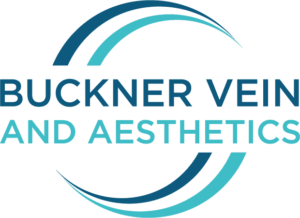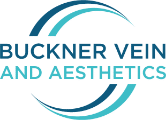Chronic Venous Insufficiency
Vein disease is incredibly common – and manageable. But if left untreated, what starts as a small issue can lead to potentially dangerous complications. Chronic Venous Insufficiency (CVI) is a medical condition in which a person’s veins are unable to properly transport blood from the legs back to the heart. The most common symptom associated with CVI is the appearance of varicose or spider veins in the leg area, which doesn’t sound particularly concerning on the surface. However, if left untreated, venous insufficiency can cause far more serious complications like ulcers, bleeding, and a life-threatening condition called deep vein thrombosis (DVT).
Request a Consultation SUBMIT AN AT HOME VEIN SCREENING
Who’s At Risk?
Between 20-30 million Americans have varicose veins. Contributing factors include heredity, gender, age, weight, pregnancy, history of deep vein thrombosis (DVT and blood clots) and standing or sitting for prolonged periods of time. By age 50, 41% of women will suffer from varicose veins. Similarly, by the time they reach their 60s, 42% of men will suffer from venous insufficiency.
- Varicose veins are an inherited genetic disorder. The gene is an autosomal dominant with variable penetrance. This means the gene is passed down to every generation, but certain environmental factors are required to activate the gene. For example, estrogen and progesterone-different female hormones-activate the gene. And, heavy labor, obesity, and prolonged standing can also activate the gene over time.
- Almost 50% of varicose vein patients have a family history of the disease.
- Your chances of developing varicose veins are over 90% if both parents have the disease.
- Daughters have a 60% chance and sons have a 25% chance of developing varicose veins if only one parent has the disease.
- Varicose veins affect women more than men: 55% of women and 45% of men.
- An estimated 41% of women over the age of 50 have varicose veins.
- Moderately overweight women have a 50% increased risk of developing varicose veins.
- Women with a BMI greater than 30 are 3x as likely to develop varicose veins.
- Pregnancy increases the risk for developing spider and varicose veins.
Gender – more women are diagnosed with vein problems than men
Family History – vein problems may run in your family
Age – risk of vein problems increases with age
Lifestyle or Occupation – prolonged standing or sitting may increase your risk of vein problems
Smoking – prolonged smoking leads to harmful changes in blood vessels and blood composition
Obesity – added pressure to your leg veins from your abdomen may increase your risk of vein problems
Pregnancy – vein problems developed during pregnancy typically resolve within 3-12 months after giving birth, but not always
Treat CVI to Avoid Dangerous Complications
Symptoms of CVI range from the cosmetic to the potentially life-threatening. Some of the most common symptoms include swelling of the feet and ankles, itchy and irritated skin, cramping, aching legs, skin discoloration, skin sores or ulcers, and varicose or spider veins. If left untreated, varicose veins in particular can pose a significant threat, as they become enlarged and/or deteriorate over time. If your venous insufficiency is so great that blood pools in the varicose veins and causes them to swell further, painful ulcers may develop, and spontaneous bleeding can occur.
Although the extent of these complications will of course vary from case to case, leaving CVI untreated at the very least will result in the continued display of symptoms like swelling, itching, pain, and fatigue. In more extreme cases, patients can develop DVT – the formation of a blood clot in the leg that can prove fatal if it makes its way to the lungs. So, if you’re exhibiting any symptoms of CVI, it’s crucial that you seek immediate treatment to eliminate the potential for DVT altogether.

